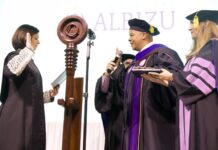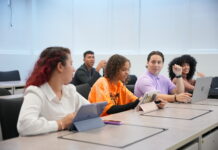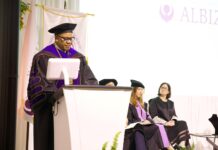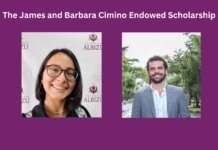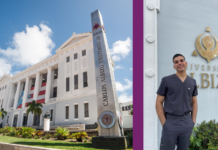A
lbizu University is going through a promising transition process. The institution understands the importance of its role in a world that is adapting to life after a worldwide crisis while simultaneously looking closely at the other events that are changing the course of history. The University is applying all the learnings that the world has taken during the pandemic and it´s looking for innovative ways to educate professionals and serve our citizens. This transitional process is directed by women. They have been working for years to transform Albizu University into the Institution that it is today. Women are key figures in a moment in which the leadership of the University is being renewed, so that the Institution is ready to face the challenges of these times at the same time that it takes steps to accomplish its goals.

For years, Doctor Berta Ríos has been fundamental support to Albizu University’s growth. While we wait for the process to elect a president to start, Doctor Ríos is tackling the challenge of taking the reins of an institution that is facing life during a pandemic as well as during a military conflict with global repercussions.
“Transitions are very important. They are not meant to be a halt and my mission now is to make sure that there is continuity in key projects and that we can commence those that are necessary as well”, Dr. Ríos explains her position as president interim of Albizu University.
“We are developing this new plan which will guide the university to the future; we will build onto what we are, a resilient Albizu.”
The priorities are clear. Dr. Ríos has proposed to continue supporting academic projects and any endeavor that offers direct help to the community “because they are part of our institutional mission and to the calling that unites all of us who are part of Albizu.” The president interim is also trying to propel cooperation between the campus of San Juan, Miami, and the Mayagüez University Center, “so that they work together in unison. It is one of the compromises that we have made with the Middle State Commission as part of the accreditation process and it is a way to strengthen our academic offering as well as our relationship with the groups that we serve. We want to showcase a university that accommodates from different locations, rather than having three centers of education.”
Albizu is also going through another important process for its evolution: it is developing a strategic plan that will establish the specific goals for the next years. Dr. Ríos claims in this respect: “We are developing this new plan which will guide the university to the future; we will build onto what we are, a resilient Albizu.”
As an academic, as a woman, and as a professional, her approach is to unify, tend to, and understand diversity because it is part of her life experience. Dr. Ríos was born and raised in Río Piedras, but she lived and worked in different areas of the United States such as the states of New York, Massachusetts, North Carolina, Florida, and the District of Colombia where she experienced many of the situations faced by minority groups. This has given her a multicultural perspective that guides her vision of what the University should be. Beyond her genre, Dr. Ríos tries to let her work speak for itself. “I have been inspired by women and men throughout my life. If the work in the presidency of the university serves as an example to other people, I want it to be an example for women and men alike.”
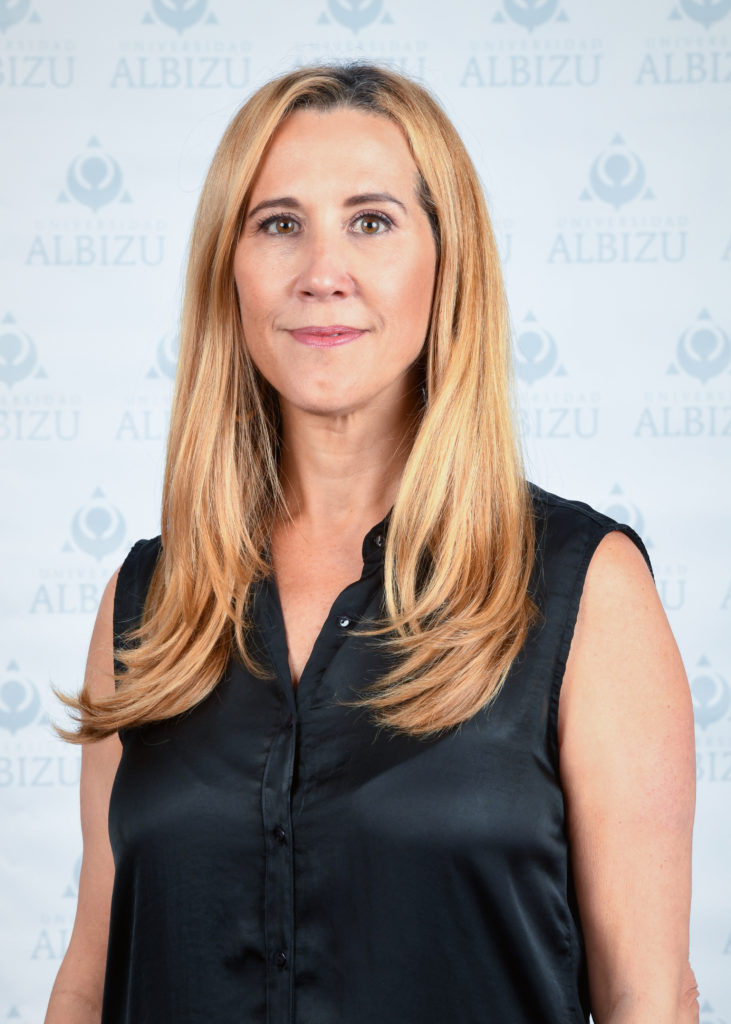
Albizu University has another woman of respectable caliber holding the reins. Teresa Bolívar has been on the Board of Trustees of the Institution for 9 years, and recently she became president of said body. For her, the responsibility comes on a promising occasion. “It is a key moment to support the University now that a new president is being sought. And it is a critically important time for the work that the Albizu does, at a time when there is such a need for dedicated mental health professionals serving our communities,” she explains. Bolívar has decades of professional experience in sales and marketing, and she now leads strategic projects at a home goods company with a solid track record. She wants to guide the growth of the University based on its strengths. Consonant with her vision and her trajectory, her focus is on several particular issues.
“The goal that we pursue for Albizu is to fulfill our strategic plan and continue to improve the level of success in professional license exams, which is an area in which we have already seen great progress. We also want to attract more students and future professionals to our campuses and be able to offer more academic programs online. For that purpose, we have added professionals to the team that will help us strengthen the IT area and obtain donations.”
“It is essential to retain our talent, our faculty, and students.”
The president of the Board of Trustees also wants to continue making the institution known in the United States. “In Puerto Rico, when you say Albizu, people know that you are talking about the most recognized University on the Island in the training of mental health professionals. We want to project that identity beyond Puerto Rico, especially in the state of Florida.” To achieve this, Bolívar has the support of Albizu. “I am happy to have the honor of working with a top-notch group of trustees, faculty, and administration, and I want them to feel like they have all the support they need to take the university where we want to take it.”
What has inspired this leader throughout her life? “My mother,” she says without hesitation, “left Cuba at the age of 18 without knowing that she would never be able to return to her country.” Out of necessity she adapted to a new life, she raised her three children and her two sisters, and then she studied, graduated, and had a career as a teacher. “She taught me what discipline is as well as the value of work,” she tells proudly.
But learning often takes suffering and sacrifices. That is why she is concerned about something in particular about the circumstances that we live in the world today. “We live at a time when mental health is now more important than ever, with a pandemic and a war bringing so much uncertainty. At this crossroads, it is essential to retain our talent, our faculty, and our students. Many of them are facing difficulties that may lead them to drop out of school. We want them to continue to be part of Albizu and join the institution’s mission.”
Dr. Ríos has a similar concern. “We went from one world crisis to another. We are seeing and experiencing the suffering and destruction of war and I am concerned about the impact that this will have on mental health. But it is encouraging to see how we have reacted to the conflict. A movement of sensitivity and empathy has been awakened in many countries, in institutions such as the Albizu University, and among individuals. This transcends the war and political conflict. And that global reaction gives me hope.”
Through the University, both are doing their part so that we understand and can face the new realities of the world in which we live.



